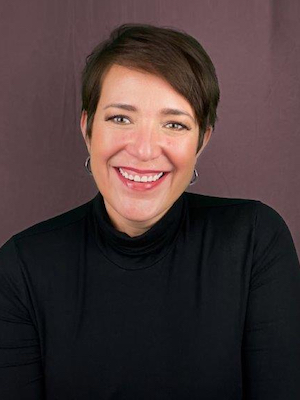
I know that we have all finished being thankful and now turned our attention to awaiting the birth of our Lord and Savior Jesus Christ, and, of course, the giving and receiving of Christmas presents. But I want to back up for just a minute.
Recently, you and I received more emails than we could count asking for money on Giving Tuesday. I sent some of those emails. After all these years of leading organizations that depend heavily on the generosity of donors, I still find the giving of and asking for money rather onerous.
My therapist might observe that this distasteful feeling around money comes from childhood trauma, but in this case, I admit my parents were well-intentioned.
Every week, we kids would sit at the dining room table under careful supervision to separate the coins of our weekly allowance: 10% to the offering at church and the rest divided into spending money and savings, from what I recall.
While my parents carefully taught me to give away 10% of what I earned, for some reason, the giving away always felt like an obligation that bred a vague resentment. Yet, I did the same to my own children, who are now supporting the work of good therapists in three different states.
Thinking about all of that made me begin to wonder when that vague resentment and feeling of obligation about money started to shift into something more like raw fear.
There was a time in my life when I found myself suddenly and unexpectedly in the position of sole breadwinner and single parent. During that season, there were many months when I watched the balance in my bank account dwindle and had to make hard decisions about what bills I could and couldn’t pay.
I think it was then that money – the having or not having of it, and especially the giving of it – shifted from obligation to almost dread.
And here’s where I ran into trouble, because the problem of seeing money through a lens of resentful obligation is just what happened to me: there will come a time in your life when that vague obligation will turn into fear, and the fear of not having enough will be the motivation that controls your entire life.
It was during that time in my life when I came home from work one day and found a letter from a dear friend. Enclosed in the letter was a check for $500 that helped me bridge the gap I had been trying desperately to navigate.
In the enclosed letter, my friend wrote: “I know you are so worried about money. Please don’t let the fear of not having enough money control your life. No matter what happens, your children will always have enough to eat, and you will always have a safe place to sleep. Let go of the fear; you will all be okay.”
As I read her note, the words seemed to jump off the page: my children would always have enough to eat and a safe place to sleep; the community around us would be our safety net; my fear of not having enough was crippling me.
And she was right. We had more than enough, and yet I had been spending far too much time allowing fear to drive my living anyway.
Fear of not having enough has been destructive in my own life, and it’s disastrous when we all cede to it, because nursing fear makes us small. It shrivels up goodness and fertilizes resentment; it breeds closed fists or paltry offerings. Maybe worst of all, we lose minutes, hours, days of precious life and joy-filled circumstance.
And that’s a damn shame, because I’d venture to say that most of us reading this column have more money than we need in a world where most people live on less than $1.00 a day. There’s no question that we are extraordinarily wealthy, and yet, what we have very often controls us, instead of the other way around.
So, now that we’ve all given money to our favorite charities, I wonder what would happen if we gave some more? What if we pushed back the fear that money breeds in us and began to think of what we have as a tool to generously do the good work of healing the world?
Just think! We could metaphorically put all our coins on the dining room table. We could spread them out and see clearly that there’s so much that we have — maybe even more than we thought.
And we could think to ourselves: “How amazing! Imagine what a difference this could make in the life of someone whose children don’t have enough to eat or a safe place to sleep! How lucky am I to be able to give this away?”
If we did that, we could change our perspective to one that reflects the truth that none of what we have actually belongs to us.
All of this abundance, of course, belongs to God. And the thing about changing our perspective this way is that it begins to pry open our clenched fists. It lets us relax in the knowledge that we have enough, and it transforms us into people who are about the business of healing the world.
And how lucky are we to be entrusted with a job of such critical importance?
Founder of Invested Faith, Butler currently leads National City Christian Church as intentional interim senior minister. Prior to that, she served for five years as the seventh senior minister and first woman at the helm of The Riverside Church in the City of New York. Butler holds degrees from Baylor University, the International Baptist Theological Seminary and Wesley Theological Seminary.

